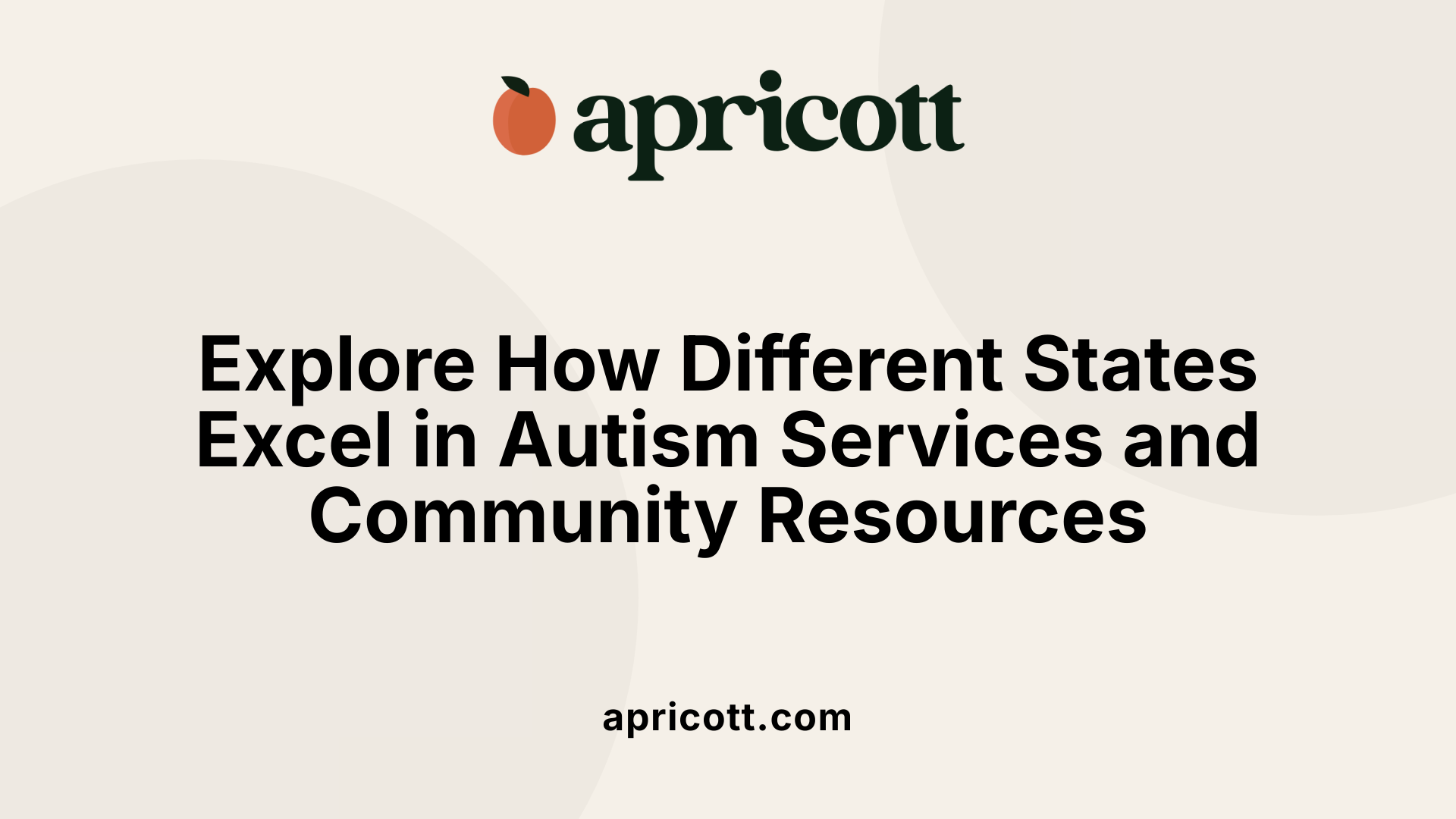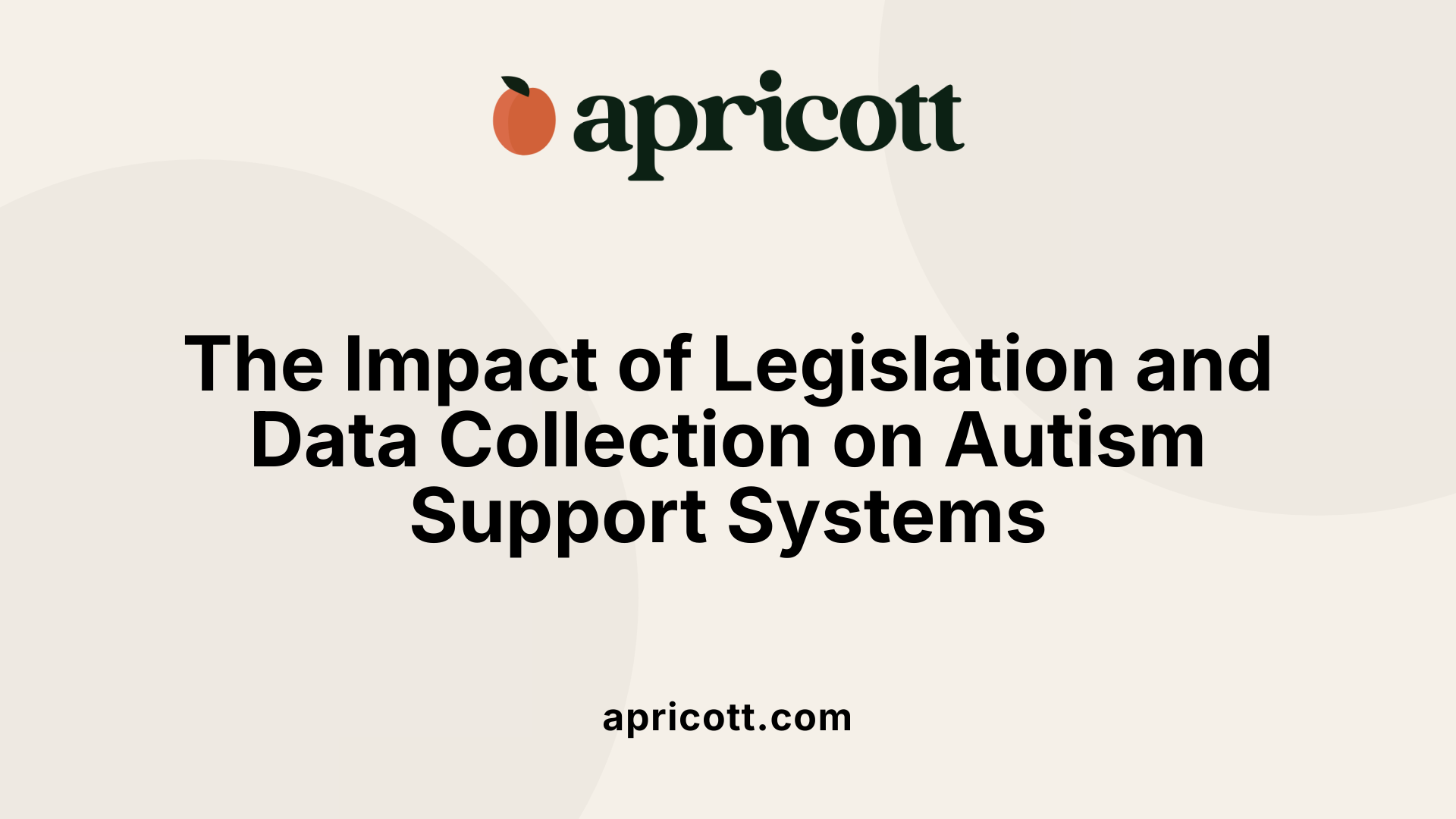August 4, 2025
Supporting Autism Across the United States: A State-by-State Overview
Autism spectrum disorder (ASD) presents unique challenges that require targeted resources, supportive policies, and community engagement. Across the United States, states vary significantly in their capacity to support individuals with autism, influenced by funding, legislation, healthcare access, and community programs. This article provides a comprehensive review of the top-ranked states for autism support, discusses the legal and organizational frameworks at both state and national levels, and explores how autism registries and policies shape services. By understanding these regional differences, families and advocates can better navigate available resources and push for improvements where support is lacking.
 Among U.S. states, Colorado, Massachusetts, and New Jersey are recognized as leaders in providing comprehensive support and services for individuals with autism. These states excel across various domains, including healthcare, education, and community resources.
Among U.S. states, Colorado, Massachusetts, and New Jersey are recognized as leaders in providing comprehensive support and services for individuals with autism. These states excel across various domains, including healthcare, education, and community resources.
Colorado stands out for its extensive early intervention programs, community-based social skills workshops, and parent support networks. It also offers medical treatments that are easily accessible, along with legislation specifically aimed at improving autism services.
Massachusetts boasts inclusive classrooms paired with personalized education plans such as Individualized Education Programs (IEPs). The state has robust healthcare options, making available therapies like Applied Behavior Analysis (ABA) and speech therapy, which are crucial for developmental progress.
New Jersey provides a strong array of state-sponsored programs, including ABA therapy, speech development, and respite care. Its insurance laws favor extensive coverage of autism treatments, ensuring that families receive essential support.
California leads nationally in grants, laws, and inclusion initiatives related to autism. It has made services and supports for disabilities an entitlement. The state is home to leading autism research centers and offers wide availability of evidence-based therapies like ABA, speech, and occupational therapy.
Efforts to improve autism support are backed by several organizations and resources. The Autism Society and Autism Speaks are prominent national organizations that provide advocacy, research funding, and community support. Autism Now and the CDC also supply vital data and educational resources.
At the state level, many states have specialized agencies such as the California Autism Professional Training and Information Network or the Ohio Center for Autism and Low Incidence, which directly support service providers and families.
Detailed information about the available programs is often cataloged through state health agencies, councils on developmental disabilities, and federally funded initiatives.
| State | Support Strength | Notable Programs and Resources | Rankings & Highlights |
|---|---|---|---|
| California | Very high | Leading research centers, extensive ABA, speech, and occupational therapy | Top in grants, laws, and inclusion, services as entitlement |
| Colorado | High | Medical treatments, social skills workshops, parent networks | Noted for early interventions and community programs |
| Massachusetts | High | Inclusive classrooms, personalized IEPs, healthcare access | Robust research centers, insurance mandates |
| New Jersey | High | State-sponsored programs, autism-specific schools, insurance mandates | Strong coverage, comprehensive family support programs |
Autism registries are crucial tools for gathering data to better understand prevalence, risk factors, and outcomes. Various states, including Delaware, Indiana, Utah, and West Virginia, maintain registries that track diagnosed cases. These data help public health officials plan and allocate resources. The federal ADDM Network collaborates across states to compile nationwide data. Despite progress, discussions continue about establishing a unified national registry due to ethical concerns over privacy and data management.
The effectiveness of autism services depends on legislation on insurance coverage, the availability of evidence-based therapies, inclusive education policies, and community outreach. Disparities in geographic and socioeconomic access remain challenging, but ongoing efforts aim to expand equitable services.
By focusing on these areas, states can continue to improve their support systems, ensuring better quality of life for individuals with autism and their families across the nation.

Autism registries are crucial tools used by both states and the federal government to gather detailed information about individuals diagnosed with autism spectrum disorder (ASD). These databases support research, planning, and policy development by providing essential data on prevalence rates, risk factors, and health outcomes.
State registries, such as those in Delaware, Indiana, and Utah, focus on collecting specific data to help public health officials understand local trends and needs. Their purposes include estimating how common autism is in different communities, investigating clusters or outbreaks, and guiding resource allocation.
On a broader scale, the Autism and Developmental Disabilities Monitoring (ADDM) Network, operated by the CDC, coordinates across multiple states to produce comprehensive, population-based data. This enhances understanding of autism across various demographics and over time. These registries help improve early diagnosis, shape effective resource distribution, and support the development of targeted interventions.
Despite their benefits, debates about creating a unified national autism registry persist, centered around privacy, ethics, and concerns over government oversight. Some advocate for centralized data collection to streamline research and improve services, while others worry about potential misuse of sensitive information.
While top-ranked states like Colorado, Massachusetts, and New Jersey demonstrate exemplary support through comprehensive services, robust legislation, and dedicated registries, there remains significant variability nationwide. Addressing disparities in access—especially in rural areas and underserved communities—requires continued policy development, increased funding, and enhanced community outreach. Strengthening autism registries at both state and national levels can significantly improve research and service planning, but must be balanced with privacy considerations. Ultimately, fostering collaboration among federal, state, and local agencies can lead to more equitable, efficient, and innovative support systems, ensuring that all individuals with autism, regardless of where they reside, receive the support they need to thrive.